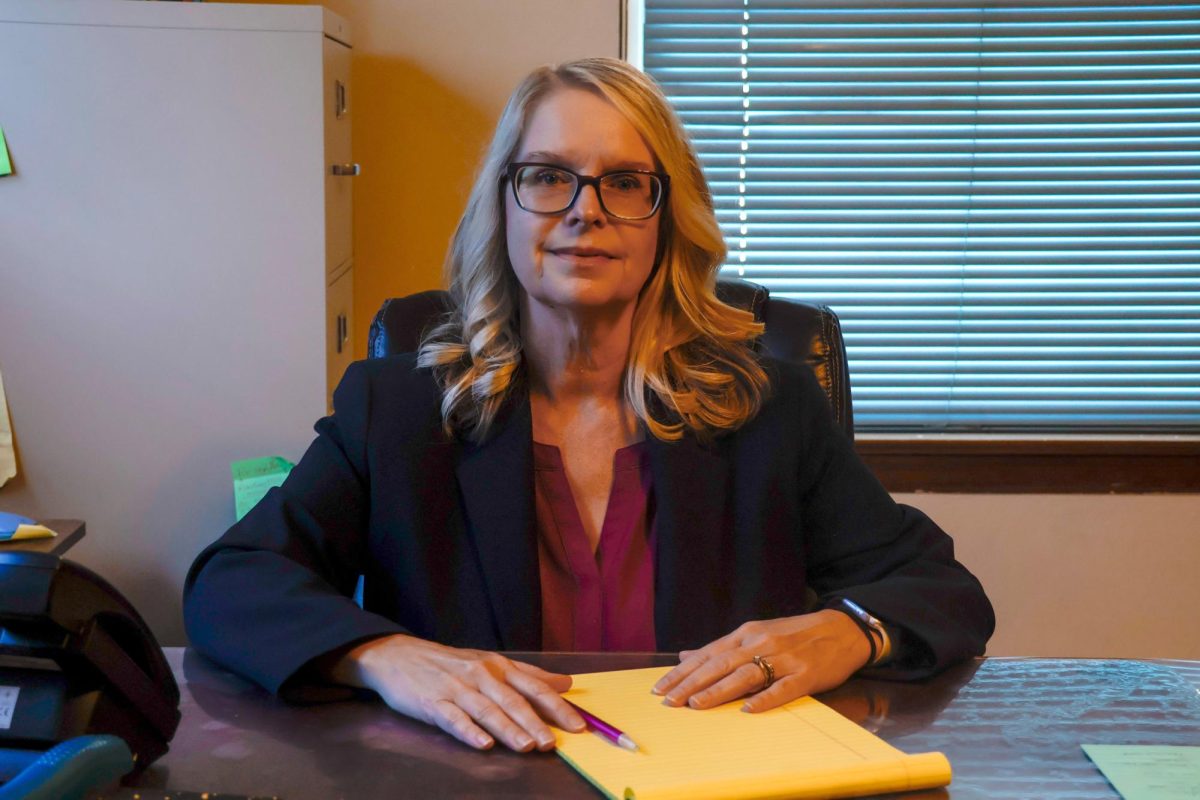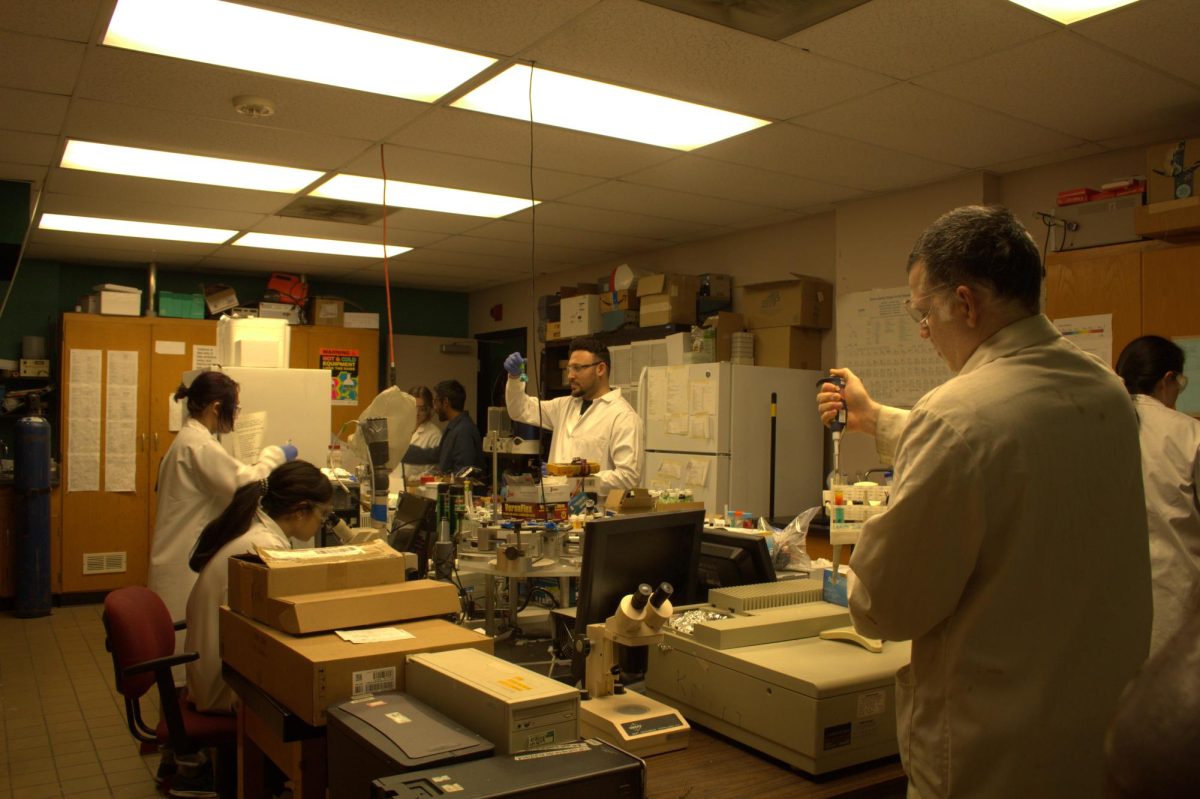SIU students translate untold stories from German women resisting the Nazi Regime
February 13, 2019
Starting out as a school project only meant to receive class credit towards their degree, three students began transcribing untold stories from women fighting against the Nazi Regime.
“We have found multiple stories of women – in every aspect of the war – were doing everything that they could. [It is] simply the fact that they were underestimated and overlooked,” said Benjamin Reese, a junior from Machesney Park in the German education program. “I think that was their greatest advantage.”
The analysis is a collection of women all fighting for the same thing, Leia Ruebling, a senior in the German studies program, said.
Advertisement
“We have a lot of eyes looking at us right now, it’s awesome, but the pressure is on for sure to get everything translated correctly,” Reubling said. “Not only that, but not lose any validity in the content that is given to us.”
Spencer Blake, a senior in the German education program, said he is currently student teaching, but is helping Reubling and Reese along the way.
“There are roughly 18 women presented in this catalogue, and so far we have only translated about six or seven,” Blake said. “I would anticipate by the end of this semester, we will be finished.”
Reubling said their goal is going to eventually become published translators after the group has checked everything for accuracy with the museum in Frankfurt, Germany.
The students were offered this project by Carola Daffner, an associate professor of German at the university, who found it from the German Resistance Research Council in Frankfurt, Germany and asked if they would be willing to take it on.
“We’re translating a catalogue from a museum that has an exhibit specifically about women who resisted during the third reich and not just popularly known women,” Blake said. “These are lesser known women that fought either violently or non-violently during the time of the Nazis.”
It’s like uncovering a puzzle – uncovering old stories and you learn more as you go along, Blake said.
Advertisement*
“It’s important because women in history have been really underrepresented,” Blake said. “There are plenty of stories of men that have resisted, but we want to be able to share stories of women resisting during the third reich and how their stories are told so other people to look to them as role models.”
Reese said he doesn’t think people understand what women truly did and were largely overlooked during that time period.
“Men, at the time, were targeted directly by the Nazis regardless if you were Jewish or if you were an Aryan,” Reese said. “According to the Nazis Regime they had two objectives – you were either being recruited into the Nazi Regime or you were being killed because you’re seen as a threat.”
Nazis didn’t see women as a threat because they underestimated women, Reese said. While they did help their families by getting groceries or mail, they were also organizing for underground groups against the Nazis.
“These women were passing out flyers or creating these underground groups that were secretly going against the Nazis, whether it was propaganda or actually on the battle fronts,” Reese said.
Reubling started out translating items in the Special Collections office, dating back from World War I. Those were hand-written letters and postcards from the soldiers while they were physically in battle.
“It was very difficult for me to continue on that journey because of the amount of time I was putting in and the amount of work I was not getting, unfortunately, because they were all written in a different alphabet,” Reubling said.
Reubling said that it is a beautiful thing to have the opportunity to share their knowledge with people who may not realize how much women did within fighting against Hitler, she said.
“Especially since how constantly in history, the U.S. is taught ‘we did this, and we did that,’” Reubling said. “Those things are important, but overtaught. We never hear about these women’s stories, obviously because they have never been translated into English.”
The fact that this is the first time it’s being translated into English shocked Reese because the language is so common now, he said.
“It’s almost hard to find something that has yet to be translated, just because of the overwhelming amount of technology that has come into this world,” Reese said.
Reubling said that it is empowering to know that women were breaking boundaries and moving forward when situations were so uncertain.
“Women had a very, very strong role in Germany before, during, and after the war,” Reubling said. “They will always have that.”
Staff reporter Emily Cooper can be reached at ecooper@dailyegyptian.com or on Twitter at @ecooper212.
To stay up to date with all your southern Illinois news, follow the Daily Egyptian on Facebook and Twitter.
Advertisement









